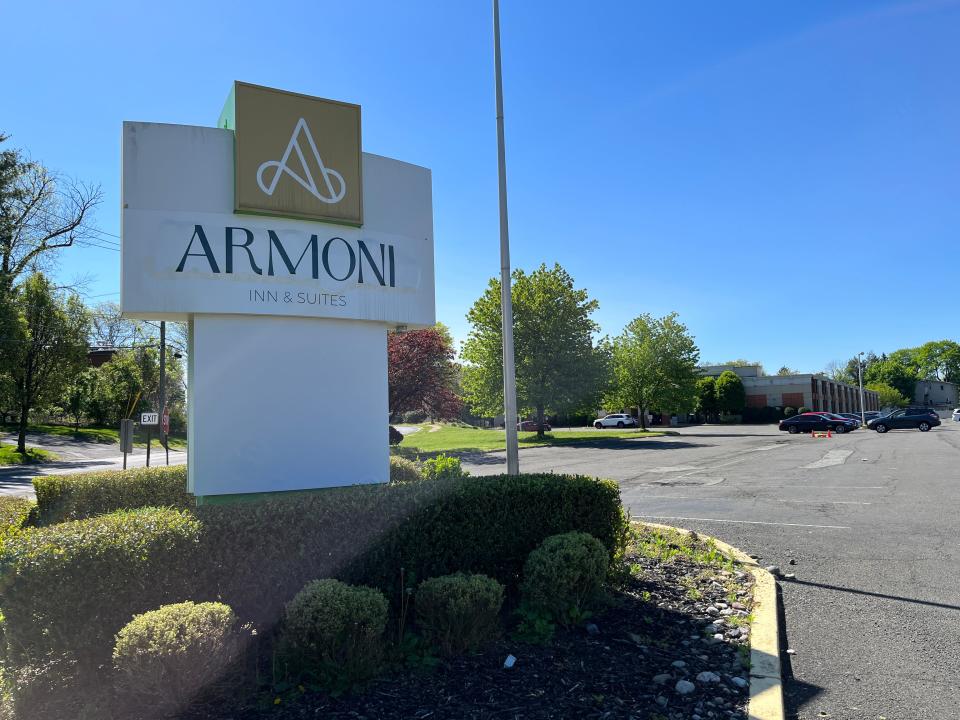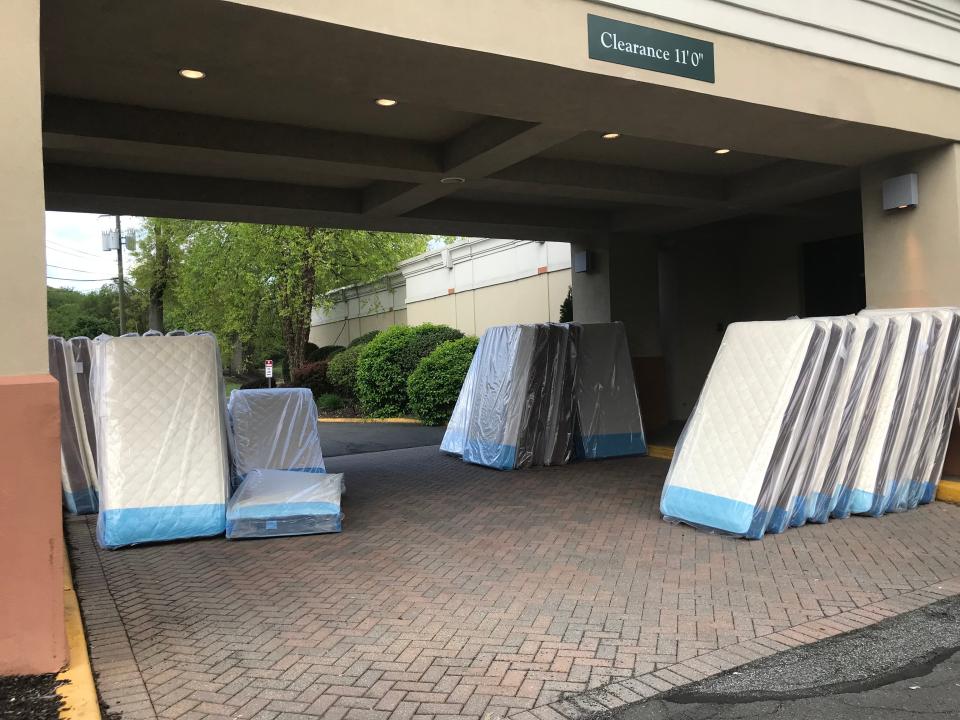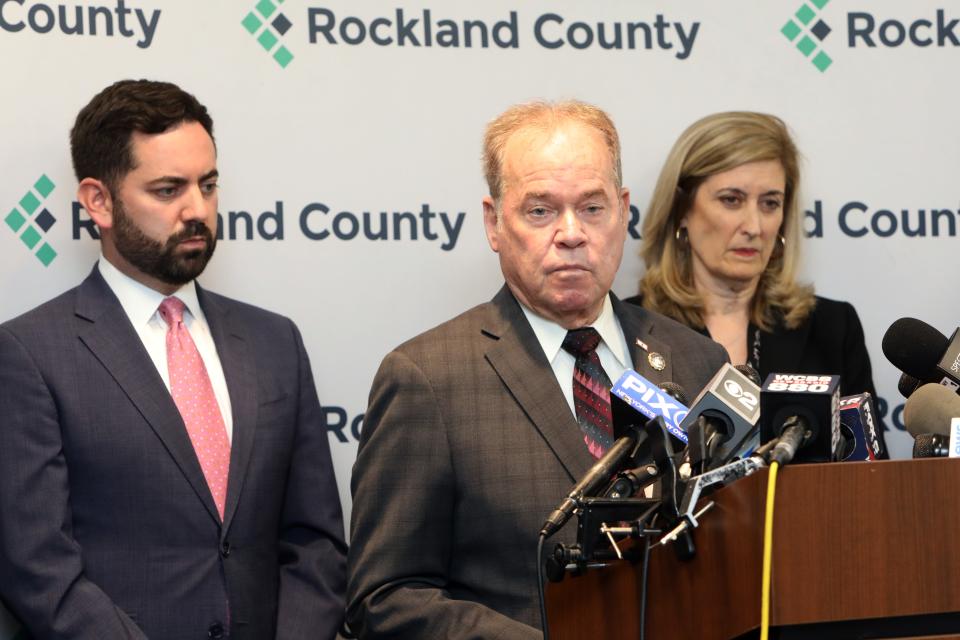A Rockland County hotel was the focus of fury last year when New York City announced plans to move some of the migrants in its care to upstate hotels, setting off ripples of resistance across New York.
The city’s first accommodation option was to be the Armoni Inn & Suites off Route 303 in Orangeburg, which had already made a deal to house asylum seekers and was preparing for their arrival. A court order soon blocked those plans, setting the stage for a legal fight that continues to this day and has prevented the hotel from ever boarding any migrants.

But that didn’t stop the company that booked the Armoni Inn from billing the city for at least two months for rooms it never used — and pocketing its share.
It turns out the city paid $833,340 for empty rooms at the Armoni for all of May and June of 2023, according to an audit released last week by New York City Comptroller Brad Lander. DocGo, the company hired by the city to book hotels for migrants and oversee their operation, charged that amount for 61 days with no lodging and kept $343,140 of the payment as its commission.
The audit examined bills for only those two months, so it’s unclear if DocGo continued billing the city for the Armoni after June. DocGo and the city agency that paid the bills — the Department of Housing Preservation and Development, or HPD — didn’t respond to questions this week from the USA Today Network about when the Armoni bills ended.
In an emailed statement to the USA Today Network, DocGo said most of its charges were used to pay subcontractors and local businesses, and went toward a good cause: making sure that “families arriving in New York City receive the support they need.” It took credit for serving 32,000 asylum seekers at various hotels by providing shelter, medical and social-work appointments, and “millions of meals.”
“Our collaboration illustrates how private enterprise can be an essential partner for municipalities, enabling them to respond quickly to complex emergencies,” the statement read.
Billing for empty rooms went on after Rockland hotel was off limits
HPD told auditors it paid for empty rooms at the Armoni Inn because the temporary order that first barred their use “could be lifted at any time,” enabling the city to move in migrants, according to the report. But it gave no proof it had agreed with DocGo to “block and pay for rooms for the two-month period” while the case was pending.
The audit overlooks another flaw in HPD’s response: that billing for the Armoni Inn continued after a subsequent court ruling made clear it couldn’t be used.
That came when a judge issued a preliminary injunction on June 12, 2023, which barred the use of the Armoni Inn for the duration of the court case, as the Journal News/lohud.com reported at the time. And yet the empty-room charges continued at least until June 30 — another 18 days.
The Armoni uproar erupted in early May of 2023, when New York City Mayor Eric Adams told local officials for the first time that migrants would soon move into the hotel. Both Rockland County and Orangetown sued to stop the city, arguing the plans were illegal. Similar court cases followed in Orange, Dutchess and Onondaga counties, where other hotels had been lined up.
As those and other counties rebelled, others such as Westchester and Monroe either welcomed the newcomers or declined to fight the city’s plans. Ultimately, the city placed roughly 2,200 migrants in 14 hotels in seven upstate counties and never went beyond that. It continues using those hotels but the number of asylum seekers they house had dropped to around 1,800 by June of this year.
Local clamor: Plan to house asylum seekers at Rockland hotel may be blocked by county executive’s order
Full tab for empty rooms over two months? $1.7 million
The city paid for plenty of other empty rooms over those two months. All 335 rooms at the Crowne Plaza JFK in Queens sat unoccupied for 10 days in June, for which the city was billed $569,500. Nine days of unused rooms at the Crossroads Hotel in the town of Newburgh a month earlier cost the city $96,900.
All told, the city shelled out almost $1.7 million for empty rooms at eight hotels. DocGo’s cut: $408,680.
“The City paid for 9,874 unused hotel room nights at hotels with zero occupancy during May and June 2023,” the report read. “While auditors agree that a state of readiness needed to be maintained, appropriate documentation is essential to verify expenses are legitimate and to ensure fiscal accountability to the City, which DocGo failed to provide.”
DocGo’s made its commissions by keeping the difference between the fixed amounts the city agreed to pay and whatever the hotel or a vendor charged. The city agreed to pay $170 per night for each hotel room. The Armoni and other hotels charged DocGo just $100 a night, which accounted for the company’s large take.

Were taxpayers on the hook for city’s hotel costs?
Yes — New York City taxpayers bore the brunt of that waste. But all New Yorkers paid a share.
The state has spent $750 million so far on migrant housing, including the subsidies it gave the city to cover part of its huge expenses, according to the state comptroller’s office. New York City’s migrant expenses totaled $4.3 billion at last count.
City auditors suggested HPD demand the hotels and DocGo return what they were paid for empty rooms.
“Unless HPD can show that it provided pre-authorization to hold and pay for unoccupied rooms, the claimed costs and associated profit paid to DocGo should be recouped,” the report read.
Low impact: NYC first moved asylum seekers upstate in May. What’s happening at those hotels now?
What else did the DocGo audit find?
The audit looked at bills from just those two months — $13.8 million in expenses that are a sliver of the $181.9 million DocGo has so far billed the city. DocGo, a medical services company, was hired without bidding last year to help the city house and care for the thousands of asylum seekers who were steadily arriving on buses. The company now holds multiple contracts with the city.

Empty hotel rooms made up 12% of those two months’ worth of charges.
The audit alleged a litany of other faults. One of its claims: DocGo overbilled for security by $2 million by stationing more than one private security officer at a hotel without permission. At the Crossroads Hotel in Newburgh, for example, DocGo billed for 21 officers on single day in May, shortly after asylum seekers first arrived there. That cost $8,325 too much, including the $2,479 portion DocGo kept, according to the report.
Chris McKenna covers government and politics for The Journal News and USA Today Network. Reach him at cmckenna@gannett.com.
This article originally appeared on Rockland/Westchester Journal News: NY audit finds thousands spent on empty hotel rooms for migrants
EMEA Tribune is not involved in this news article, it is taken from our partners and or from the News Agencies. Copyright and Credit go to the News Agencies, email news@emeatribune.com Follow our WhatsApp verified Channel





